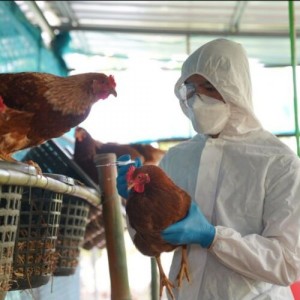Morris Animal Foundation Golden Retriever Lifetime Study celebrates 10 years
The Golden Retriever Lifetime Study recently reached its 10-year milestone, marking a decade of gathering data and biological samples to inform canine health studies for many years to come.
The study, funded by the Morris Animal Foundation, is one of the most comprehensive studies of its kind ever undertaken in veterinary medicine. The longitudinal study follows the lives of more than 3,000 golden retrievers, with an aim to improve the health and well-being of animals around the world.
Tiffany Grunert, president and CEO of the foundation, said that reaching this milestone has taken an incredible amount of commitment from the study’s families, partner veterinarians and hero dogs. “Without their dedication, this study simply would not be possible,” she said.
Seven scientific papers have been published since the start of the Golden Retriever Lifetime Study, focusing on topics such as the relationship between the timing of gonadectomy — or spay and neutering — and the development of obesity and non-traumatic orthopedic injury. The most recent paper, published in June 2022 in PLOS One, noted that more than 2,200 dogs remained in the study as of May 2021. The research team reported on cancer diagnoses and health conditions including hypothyroidism, epilepsy, hip dysplasia, heart failure and renal failure.
Currently, cancer is the leading cause of deaths in study dogs, accounting for 75% of all deaths. Of the primary cancer endpoints, the largest contributor to those deaths is hemangiosarcoma.
Based on outcomes to date, Morris Animal Foundation will fund future work to develop diagnostics and therapeutics, and to identify genetic contributors to hemangiosarcoma. Researchers will be able to use the samples collected from dogs to potentially develop early screening and diagnostic tests as well as to better understand possible genetic links.
Owners and veterinarians fill out comprehensive questionnaires annually, and veterinarians also collect biological samples at each dog’s annual visit. In addition, all dogs have been genotyped. Data from the study’s participants provides researchers with valuable information, leading to expanded research opportunities in identifying molecular signatures to detect lymphoma earlier, exploring variations in the microbiome of dogs with and without a cancer diagnosis and understanding human-to-dog transmission of COVID-19 in the cohort.
Grunert said the team is encouraged by what they have accomplished so far. “It’s the tip of the iceberg in terms of what we can learn,” she added.
About Morris Animal Foundation
Founded in 1948, Morris Animal Foundation is one of the largest nonprofit animal health research organizations in the world, funding more than $149 million in critical studies across a broad range of species. Learn more at morrisanimalfoundation.org.














List
Add
Please enter a comment